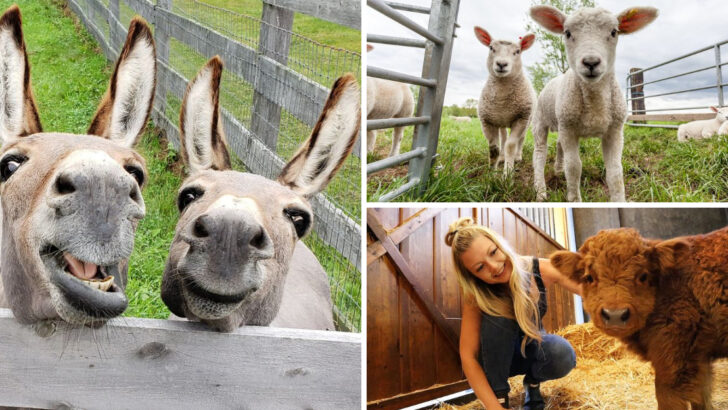A farm without animals is just a big garden. The right animals don’t just bring life to the land—they work for it. Whether it’s a goat clearing brush, a chicken turning kitchen scraps into eggs, or a dog keeping predators at bay, every creature has a job.
Some animals are there to produce, others to protect, and some just because they make life on the farm a little more fun. Ever watched a group of ducks patrol a pond like tiny feathered security guards? Or had a loyal barn cat keep your grain stores rodent-free? These animals aren’t just helpful—they’re essential.
But not every farm needs the same lineup. Some thrive with cattle and sheep, while others do better with bees and rabbits. So which animals should make the cut for a small farm in America? We’ve rounded up the 20 best ones that bring the perfect mix of function, personality, and charm.
Chickens
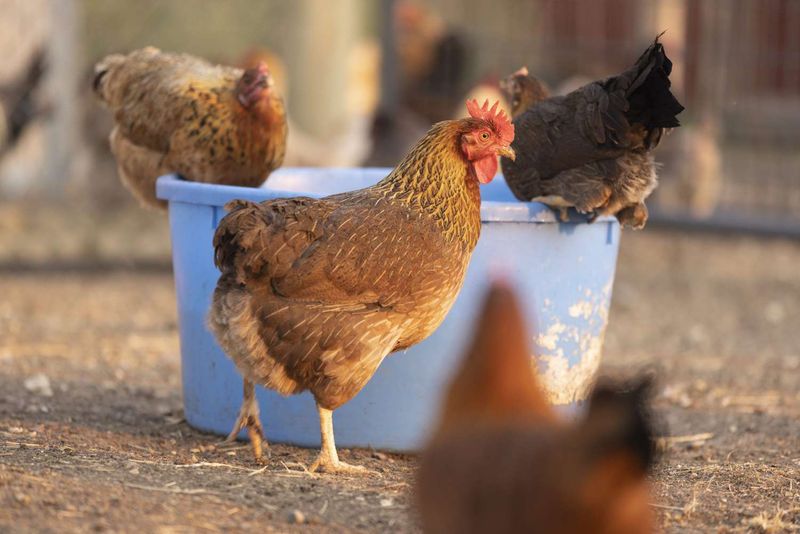
Chickens are an essential addition to any small farm. They are excellent for egg production, providing a steady source of food and income. These birds are relatively easy to care for, requiring basic shelter, food, and clean water. Chickens also help with pest control by eating insects and can even contribute to composting efforts with their droppings.
Consider breeds like Rhode Island Reds, known for their hardiness and consistent egg-laying capabilities. Keeping a rooster can help maintain flock health and protect against predators. Overall, chickens are versatile, making them suitable for various farm setups.
Ducks
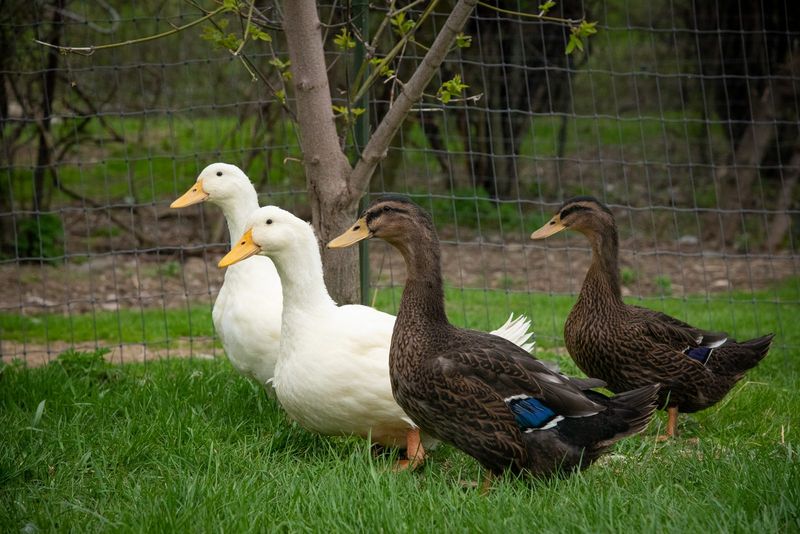
Ducks bring diversity to a small farm, both in personality and utility. These waterfowl are excellent layers, with some breeds producing as many eggs as chickens. Ducks are hardy and less prone to disease, making them a low-maintenance choice.
They thrive in wet environments, so having a pond or water source enriches their living conditions. Ducks also help control pests, feasting on slugs and bugs that can harm crops. Their friendly demeanor adds a lively presence to the farm, making them a favorite among small-scale farmers and hobbyists alike.
Goats
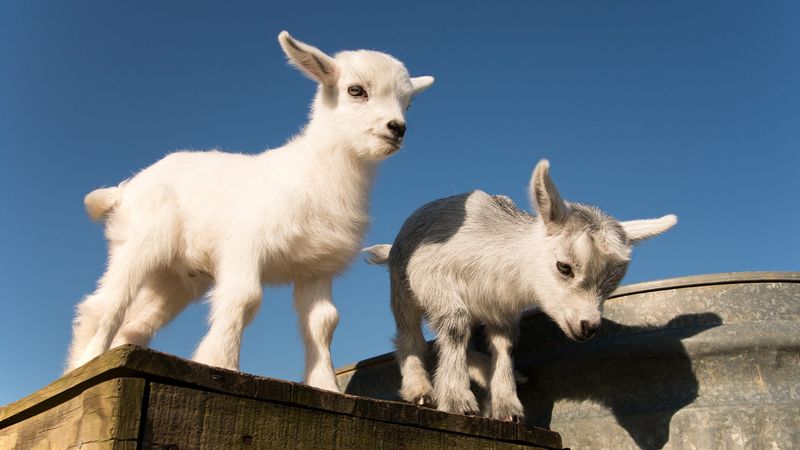
Goats are a wonderful choice for small farms due to their versatility and productivity. They provide milk, meat, and even fiber, depending on the breed. Goat milk is popular for its digestibility and nutritional benefits, making it a valuable product.
Breeds like the Nigerian Dwarf are perfect for their small size and abundant milk production. Goats are also natural browsers, helping to clear land of weeds and brush. Their playful and curious nature requires secure fencing, but their benefits to the farm make them well worth the effort.
Sheep
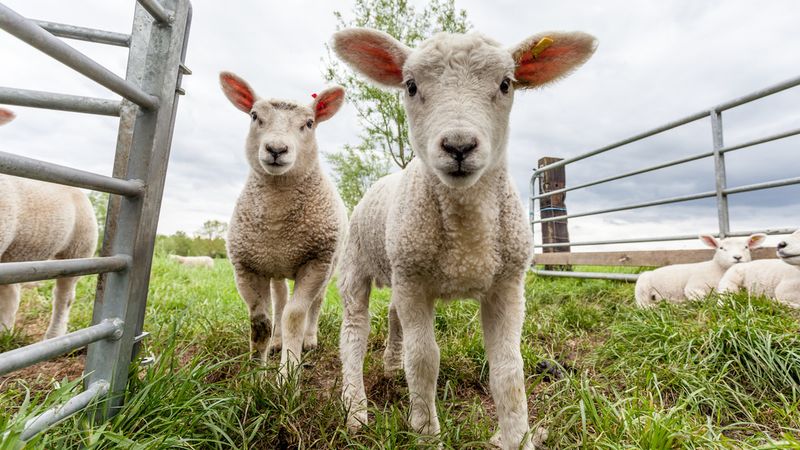
Sheep are prized on small farms for their wool, meat, and milk. They are relatively easy to manage and can graze on pastures unsuitable for crops. This makes them an efficient use of land resources.
Merino sheep, known for their high-quality wool, are a popular choice among small farmers. Sheep can also help with land management, reducing weed overgrowth. Their gentle nature and herd behavior make them easy to handle, and they integrate well with other farm animals, enhancing biodiversity on the farm.
Cows

Cows are a staple on many small farms, valued for their milk and beef. They require more space and resources than smaller animals but can significantly contribute to the farm’s output. Dairy breeds like Holsteins are particularly productive, providing large quantities of milk.
Cows also play a role in manure production, which can be used to fertilize crops. While they need ample grazing land and proper shelter, their contribution to a farm’s sustainability is immense. Careful management ensures a healthy herd that supports the farm’s ecosystem and productivity.
Pigs
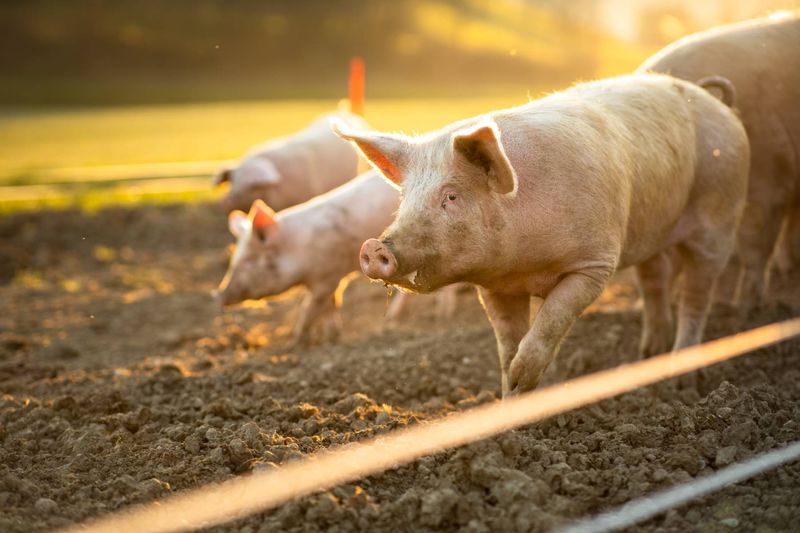
Pigs are excellent for small farms due to their ability to convert feed into meat efficiently. Breeds like Berkshire are favored for their quality pork. Pigs are also adept at tilling land, naturally turning soil with their snouts.
They require sturdy fencing and proper nutrition, but their fast growth rates make them a valuable addition. Pigs also produce manure, enriching the farm’s soil. Their playful nature and intelligence make them intriguing animals to keep, and they can be an essential part of a diversified farming operation.
Turkeys
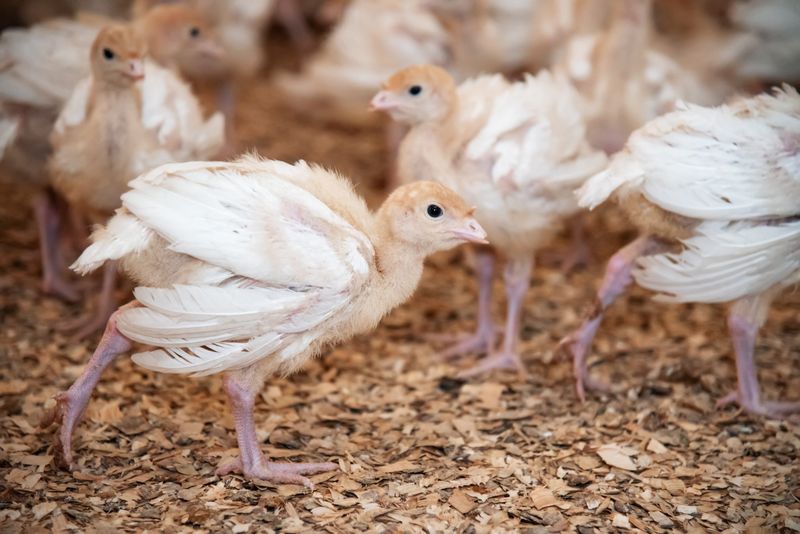
Turkeys are a great addition for those looking to diversify their poultry offerings. They are larger and require more space than chickens but can be very rewarding. Turkeys are excellent for meat production, with breeds like Broad Breasted White providing ample yield.
They need a mix of pasture and grains for optimal health. Turkeys also serve as natural grazers, helping manage fields and lawns. Their vocal and social nature adds a unique dynamic to the farm, making them both functional and entertaining.
Geese
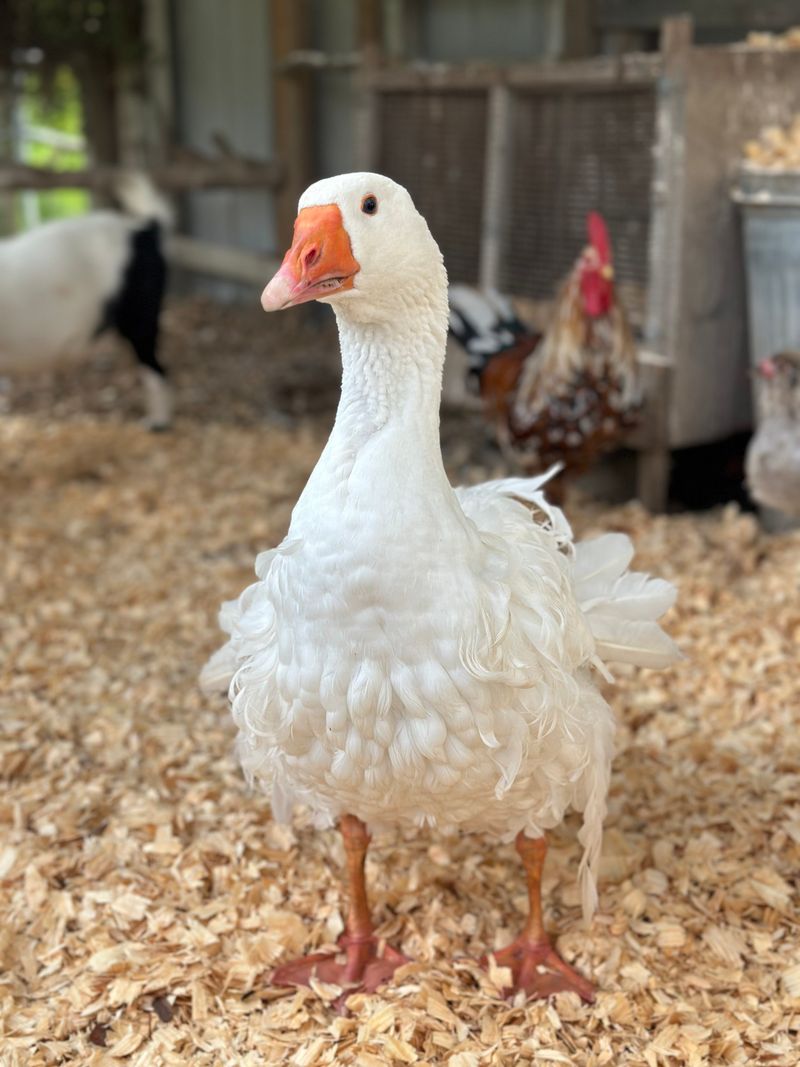
Geese are valuable for small farms due to their utility in pest control and weed management. They are natural grazers and can reduce the need for herbicides. Breeds like Embden are known for their meat and are capable guardians, alerting to predators.
Geese require access to water but are otherwise low-maintenance. They can coexist with other poultry, adding diversity. Their loud honks serve as a natural alarm system. With their ability to thrive on pasture alone, geese are a sustainable and eco-friendly choice for small farms.
Donkeys
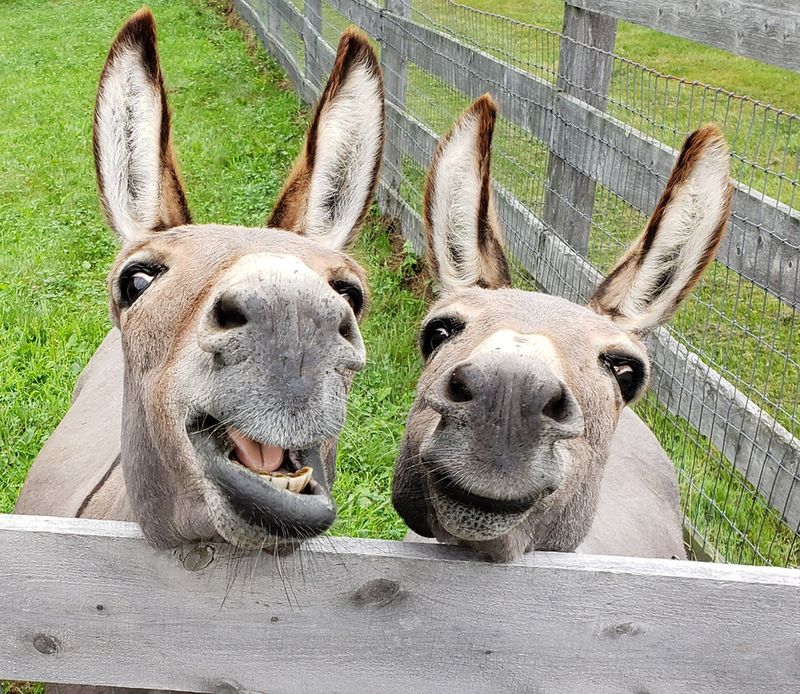
Donkeys are often overlooked but are incredibly useful on small farms. They are excellent guard animals, protecting livestock from predators. Donkeys are hardy and require minimal care, thriving on basic pasture and hay.
They can be trained for light work and are good companions for horses and other grazing animals. Donkeys are known for their strong personalities and intelligence. Their gentle nature makes them favorites among farm families. Whether as guards, companions, or workers, donkeys are a versatile addition to any farm setup.
Alpacas
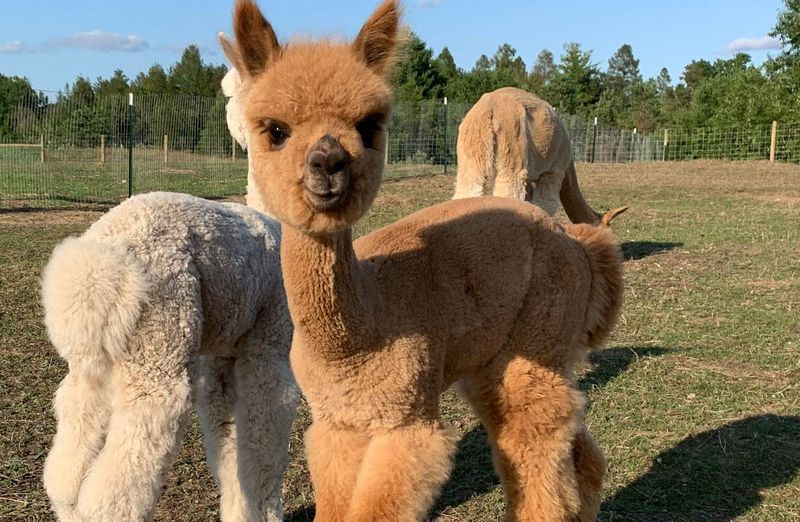
Alpacas are a unique and rewarding addition to small farms. Known for their luxurious fleece, they provide valuable fiber that can be spun into yarn. Alpacas are gentle and easy to manage, requiring less space than other livestock.
They thrive on pasture and hay, making them low-maintenance. Alpacas are also efficient grazers, helping maintain grasslands. Their playful and curious nature makes them delightful to watch. They are herd animals, so keeping a small group is ideal. Overall, alpacas add diversity and charm to any farm, along with practical benefits.
Rabbits
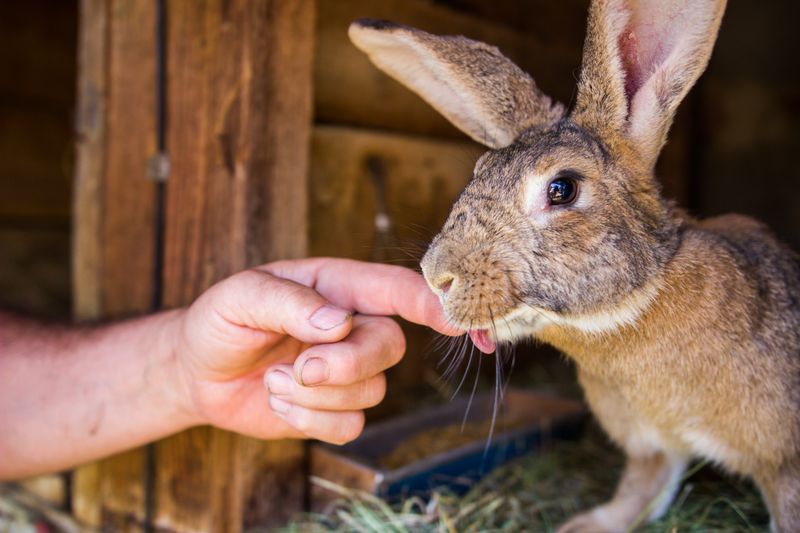
Rabbits are ideal for small farms due to their size and productivity. Breeds like Angora are prized for their soft wool, which is spun into yarn. Rabbits reproduce quickly, providing meat and fur, making them economical.
They require minimal space and can be housed in hutches or pens. Rabbits help teach responsibility and care, especially useful for children on farms. Their droppings are also an excellent fertilizer, enriching the farm’s soil. With their gentle nature and practical benefits, rabbits are a valuable asset to any farm.
Bees
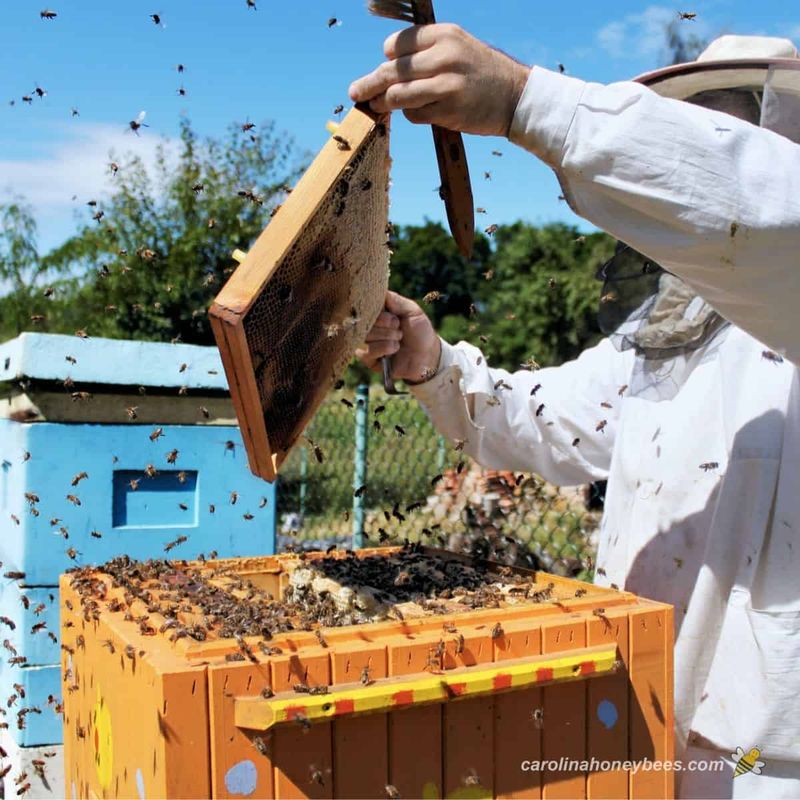
Bees are vital for small farms, contributing to pollination and producing honey. They enhance crop yields and biodiversity. Beekeeping requires specific knowledge and equipment but offers significant rewards.
Honey is a versatile product with health benefits and economic value. Beeswax can also be harvested for various uses. Maintaining hives supports the local ecosystem and encourages environmental sustainability. With growing concerns about bee populations, small farms can play a crucial role in conservation. Bees are not just beneficial but essential to a thriving farm.
Llamas
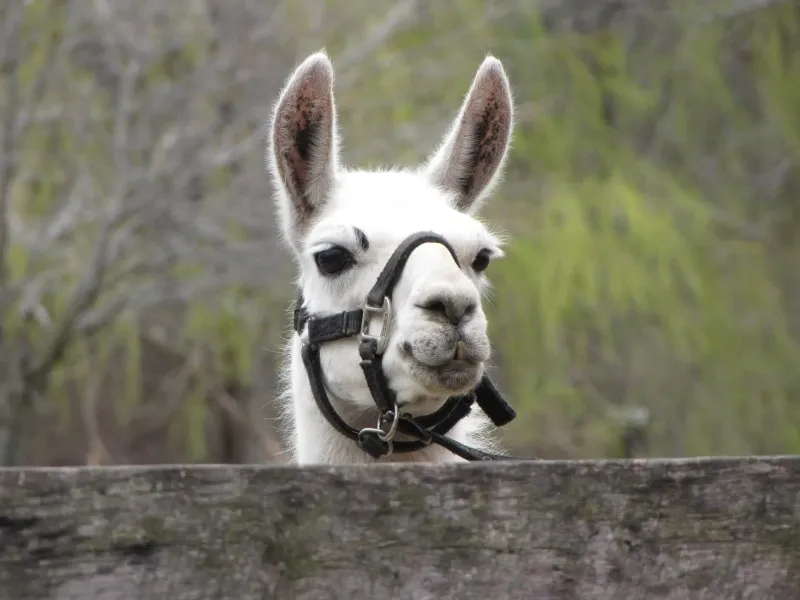
Llamas are versatile animals for small farms, offering protection and companionship. They are excellent guard animals for sheep and goats, deterring predators like coyotes. Llamas also provide fiber, with their fleece used for spinning.
They are hardy and can thrive on minimal resources, grazing on pasture and eating hay. Llamas have a unique ability to bond with other livestock, promoting harmony. Their calm and curious nature makes them popular among farmers. Overall, llamas offer practical benefits and an exotic touch to any small farm.
Guinea Fowl
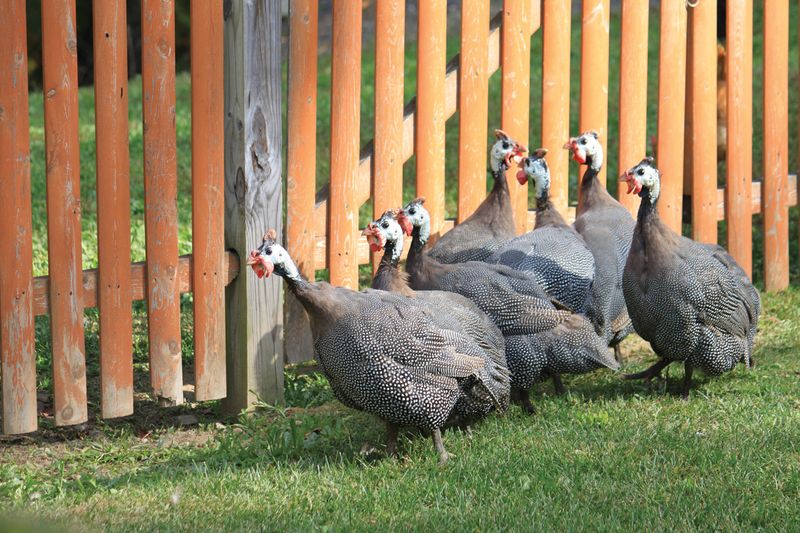
Guinea fowl are excellent for pest control, eating ticks and insects that can harm crops. They are low-maintenance, requiring minimal intervention beyond basic shelter and food.
Their loud calls can alert farmers to intruders and potential threats. Despite their noise, guinea fowl integrate well with other poultry. They are hardy and can adapt to various climates, making them a versatile choice. With their pest control abilities and easy care, guinea fowl are a beneficial addition to any small farm’s ecosystem.
Quail
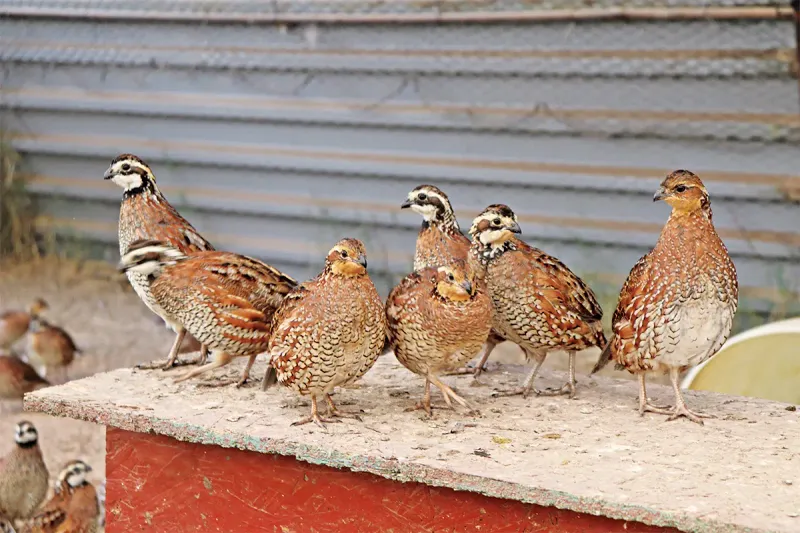
Quail are a compact and productive choice for small farms. Known for their rich eggs, they provide a unique product that can attract niche markets. Breeds like Coturnix are easy to raise, requiring minimal space and resources.
Quail are adaptable to different environments and can be housed in pens or aviaries. Their quick maturation and high reproduction rate make them economical. Quail droppings are also valuable as fertilizer. With their small size and big benefits, quail are an excellent choice for those looking to diversify farm offerings.
Peafowl
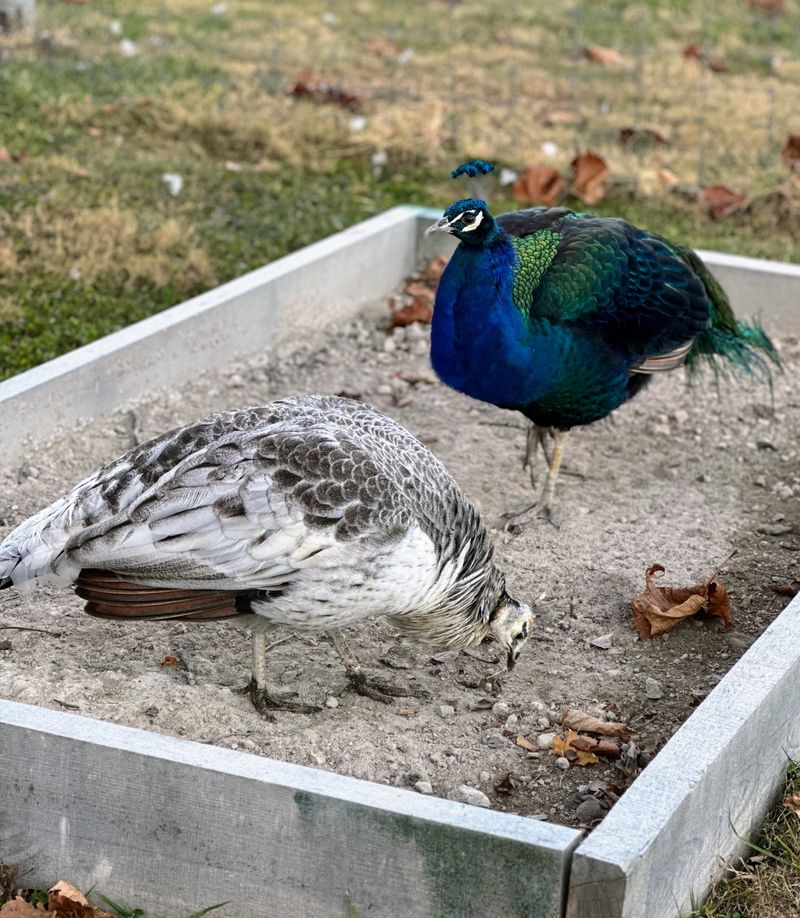
Peafowl, particularly peacocks, add a touch of beauty and exotic flair to small farms. Though primarily ornamental, they also serve as effective guards with their loud calls alerting to intruders.
They require space to roam and display their striking plumage. Peafowl can coexist with other poultry but require careful management to avoid aggression. Their presence can enhance the farm’s aesthetic appeal, attracting visitors and potential customers. With their majestic appearance and practical guarding abilities, peafowl are both a visual delight and functional addition.
Emus
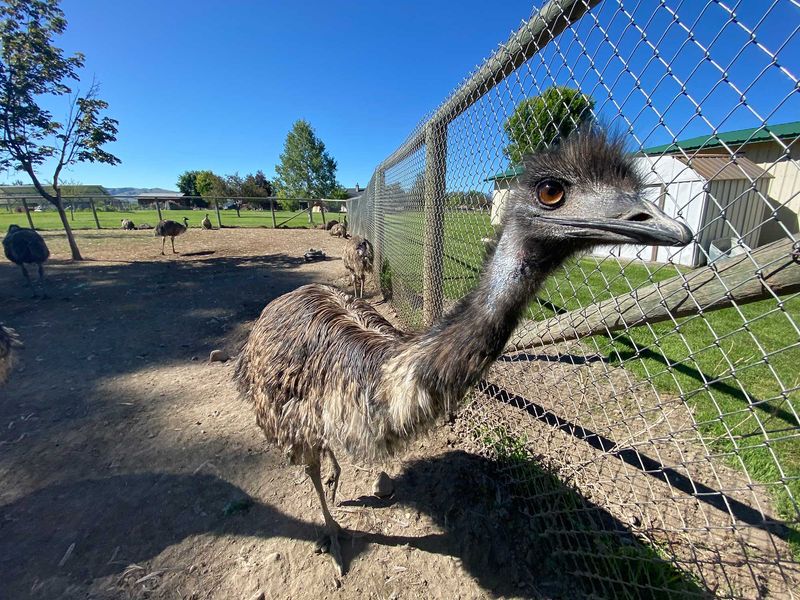
Emus are unique and intriguing animals that can offer meat, oil, and leather. They are resilient and adapt well to various climates, making them suitable for farms across America.
Emus require ample space and sturdy fencing due to their size and strength. Their curious nature brings an exotic element to the farm. Emus can be raised alongside other livestock, complementing a diverse farming operation. While they require specific care, the benefits they bring in terms of products and farm diversity are significant.
Camels
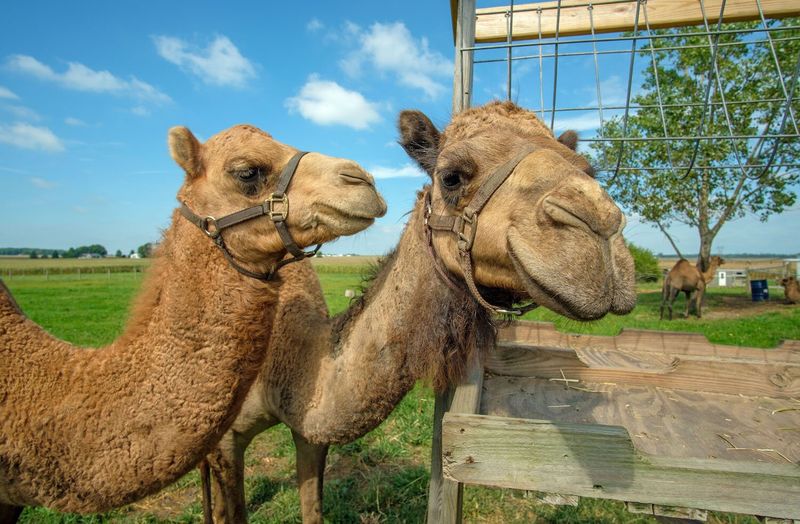
Camels are known for their resilience and ability to thrive in harsh conditions. On small farms, they provide milk, fiber, and even transport. Their milk is rich in nutrients and sought after for its health benefits.
Camels require specialized care and space, but their unique offerings make them worthwhile. They are efficient grazers, requiring less water than other livestock. Camels can handle diverse environments, making them adaptable to various farm settings. Their exotic nature adds an interesting dimension, enhancing the farm’s appeal and functionality.
Ostriches
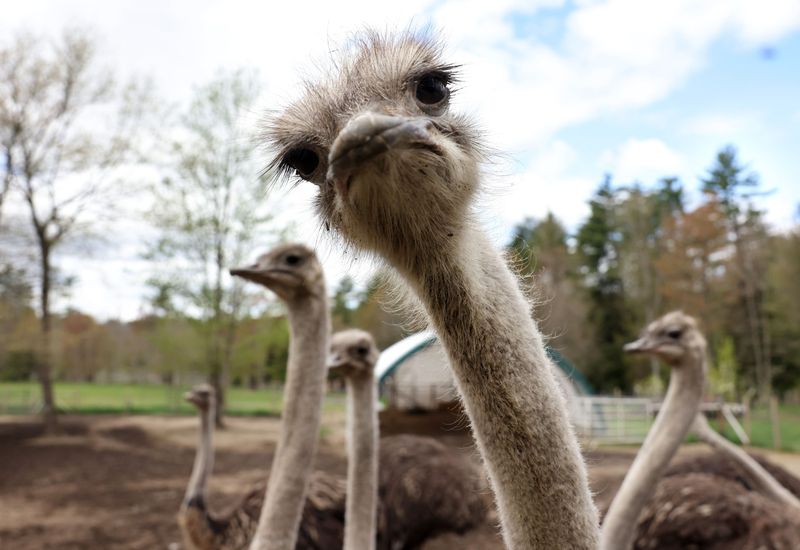
Ostriches are the world’s largest birds and offer unique opportunities for small farms. They produce meat, feathers, and leather, all of which have economic value. Ostriches are hardy and adapt well to different environments.
They require large enclosures and careful management due to their size and strength. Ostriches can coexist with other farm animals, contributing to a diverse farming setup. Their ability to thrive in various climates makes them suitable for many regions. With their impressive size and valuable products, ostriches are a remarkable addition to farms.
Yaks
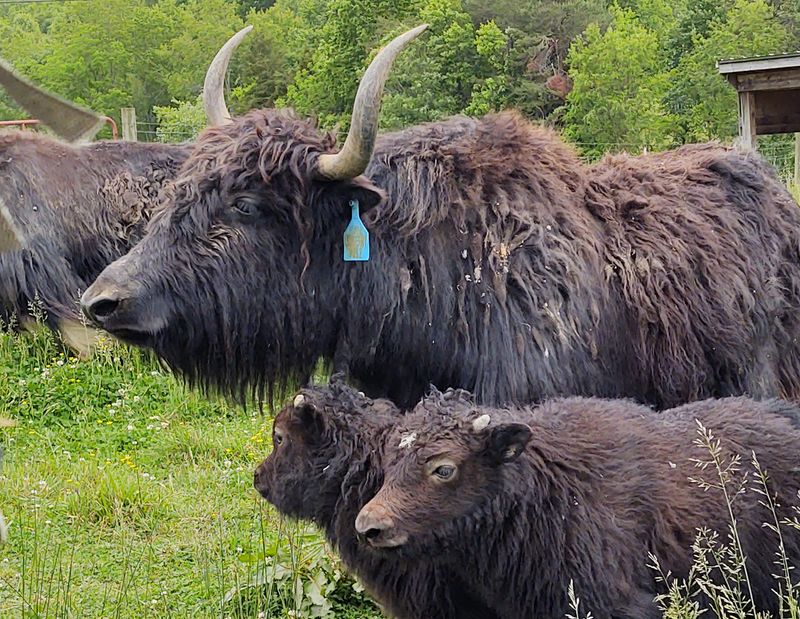
Yaks are an exotic but valuable animal for small farms, providing meat, milk, and fiber. They thrive in cooler climates and are well-suited for mountainous regions. Yak milk is rich and nutritious, while their fiber is prized for its warmth.
Yaks require pasture and shelter but are relatively low-maintenance. They are social animals, making them easy to manage in herds. Their adaptability and diverse products make them a practical choice for small farms looking to expand their offerings. Yaks bring both functionality and exotic appeal to any farm.

